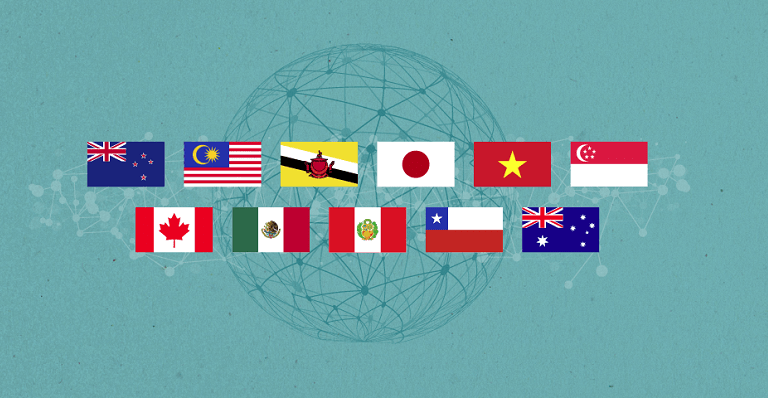In the Comprehensive and Progressive Treaty of Trans-Pacific Partnership (CPTPP), the transition period is 21 years for Japan, therefore it ends in 2038.
At the end of that period, 459 tariff lines will remain subject to duties.
Likewise, according to information from the World Trade Organization (WTO), when the CPTPP came into force, 83.3% of tariff lines were duty-free.
The tariff quotas, which apply to 160 lines, are set for all the CPTPP signatory countries or are assigned by specific countries.
The signatories to the Treaty are: Australia, Brunei Darussalam, Canada, Chile, Japan, Malaysia, Mexico, New Zealand, Peru, Singapore and Vietnam.
CPTPP
Japan signed this trade agreement on March 8, 2018, and the agreement entered into force for Japan on December 30, 2018. The agreement covers the liberalization of trade in both goods and services.
According to the authorities, the economic benefits are estimated to translate into an increase in Japan’s GDP of JPY 8 trillion and the creation of 460,000 jobs; The Agreement is expected to serve as a new growth engine for the Japanese economy.
To date, the CPTPP has not yet entered into force for Brunei Darussalam, Chile, Malaysia, and Peru.
Japan’s Schedule in Annex 2-D contains its customs duty reduction and elimination commitments.
Commitments in services related to investment and cross-border trade in services are reported by the negative list procedure, while those related to temporary entry of business persons are reported by the positive list procedure (section 4.4).
Automotive section
The CPTPP contains a bilateral agreement between Japan and Canada on trade in motor vehicles that stipulates the rights and obligations agreed between the two countries in their bilateral negotiations on market access in relation to motor vehicles.
It contains provisions regarding the establishment of a 12-year period for transitional safeguard measures; specific procedures on dispute settlement; and of a special Committee of Motor Vehicles of bilateral character. Safeguard provisions are established for agricultural products and forest products (section 4.1).
In general, the CPTPP contains provisions on, inter alia, trade facilitation; electronic commerce; public procurement; competition policy; state-owned companies and designated monopolies; intellectual property rights (section 3.3.7); labor issues; environmental issues; competitiveness and business facilitation; the development; the pymes; regulatory coherence; and transparency and the fight against corruption.
![]()

